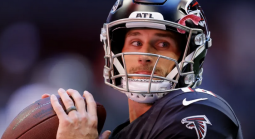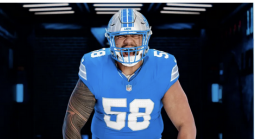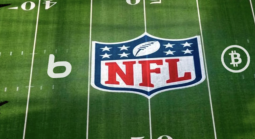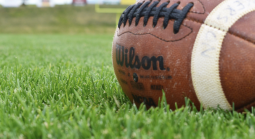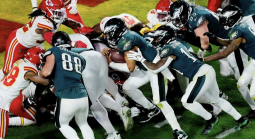NFL Betting More Popular Than Ever in Las Vegas
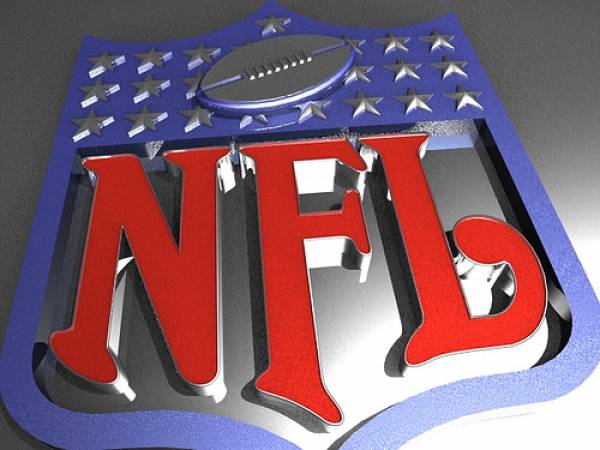
LAS VEGAS – (Associated Press) - With the Super Bowl approaching, fans are talking trash, buying snacks, and, more than ever, placing bets.
Fans bet an unprecedented $99 million on the Super Bowl last year, and the Nevada gambling industry expects to break the record again Sunday, barring a snowstorm. Nevada sports books collected record amounts of football wagers during the tail end of 2013.
All of this is changing the role of the humble sports book, which casinos used to see as a low-profit perk that kept customers from going next door.
“It’s not just an amenity anymore; it’s not just icing on the cake, it’s part of the meal,” said Jay Kornegay, who runs the LVH sports book. “We’ve seen crowds like we’ve never seen before.”
Professional gamblers and odds makers alike attribute the rise in wagering to the increase in televised games, and the increasing ubiquity of sports analysis.
Amateur gamblers are more likely to bet on a game they can watch, because the emotional journey is part of the fun.
The proliferation of sports podcasts, blogs and websites, as well as the debates that rage on social media, have all made fans feel more educated and confident in their opinions, according to Kornegay, who spent last week furiously working with four staffers to figure out hyper-specific data points like the number of receptions Denver running back Knowshon Moreno is likely to have.
Proposition wagers, in which gamblers bet on elements of the game aside from the final score, account for as much as 60 percent of Super Bowl bets in Nevada.
Johnny Avello, who runs the luxurious sports book at Wynn, where the chairs are made of fine leather and the carpet is thick enough to pass out on, believes the stigma is also falling away from the pastime.
Avello, who speaks with a Goodfellas-type Brooklyn accent even though he grew up in upstate New York, says this is the biggest change he’s seen in the past decades.
“Even Al Michaels on (Sunday) Night Football will say, ‘Wow, they covered the spread,”’ he said, grinning in disbelief.
When casinos figure out how to attract fantasy sports players to the Strip, profits may soar even farther.
Some of this growth was hidden by the recession. People scale back on gambling before other discretionary spending, and the handle – the total amount of money wagered – plummeted in 2009. It was the only fiscal year of the past ten that saw a decline in sports betting.
Oddsmakers believe the previous Super Bowl record, set in 2006, would have been upended years before 2013 if not for the hard times.
Last fall, gamblers set records in September, October and November. In November, the last month for which statistics have been released, sports books handled $490 million in wagers.
On Sunday, the Super Bowl will be played outdoors at a site with cold weather for the first time, and the industry is worried that snow could throw off the handle when the Seahawks meet the Broncos, favored to win by 2.5 points, in New Jersey. Casual gamblers might be spooked, unable to predict how the weather would affect their favored team.
The surge in betting means that sports books are now expected to contribute to the bottom line.
So while casinos are throwing elaborate parties for Super Bowl weekend, selling table service and luxurious suites, don’t expect to get so much as a free bottle of water at the sports book. At Wynn, a customer has to bet $150 before the book will think about giving out a drink ticket.
Books remain less profitable per square foot than table games, where the house always wins. An oddsmaker’s goal is to neither win nor lose on the games, but to get equal money coming in on both sides – and clean up in commissions.
This commission, also known as the vigorish or juice, amounts to about 4.5 percent of the handle at most Strip sports books.
Don’t start wringing your hands for the sports books, though. They’ve only lost twice on the Super Bowl in the past 20 years.
And they have another advantage. While betting is becoming more popular, the physical books are becoming smaller. That’s in large part because of the demise of one sport in particular: horse racing.
In days past, racing aficionados would hang around the books and watch contests from morning till night, with new ones starting every four minutes.
For the past decade, football has represented nearly half of the sports book handle, with most gamblers buying their tickets well ahead of the games.
“If you walk in to any sports book, 99 percent of the time the place is mostly empty,” said RJ Bell of Las Vegas-based Pregame.com.
Anjelko Markobis, 22, is one of the rare young men who still like to hang out in that smoky, mahogany environment. He spent a recent afternoon at the Wynn sports book. He switched between watching a soccer game he had $100 riding on and monitoring the shifting Super Bowl line on a huge LED screen, bantering with his friends about whether he should have placed his bet when it was still at 1.5.
Markobis used to spend his free time with Blackjack, but now focuses on sports betting, placing three major bets a week.
“It’s more entertaining,” he said, “to watch a game than sit at a table.”









